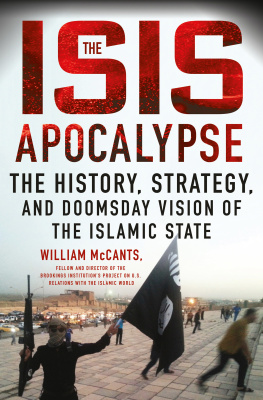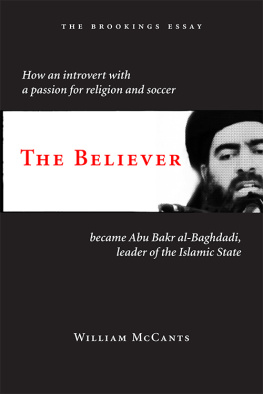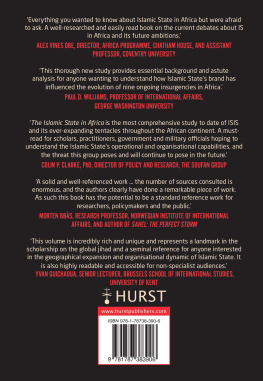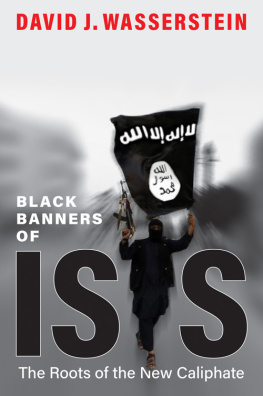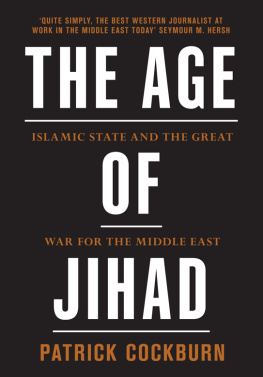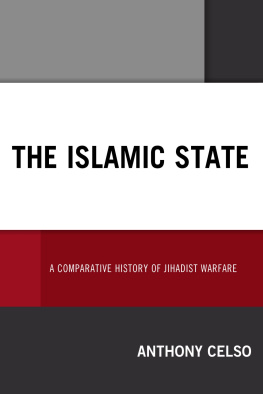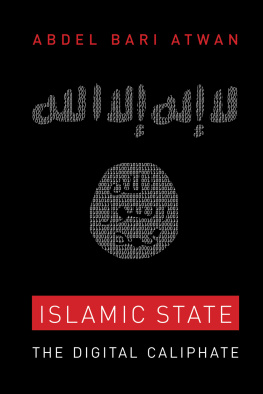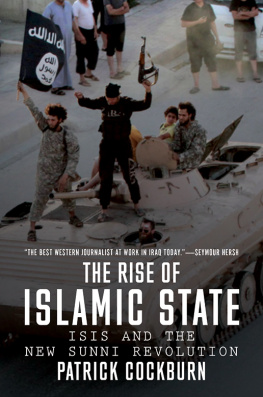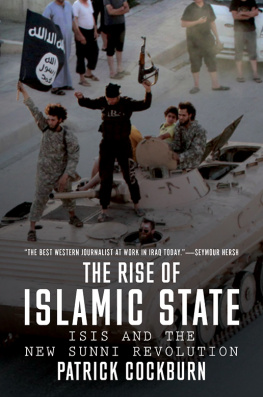Thank you for buying this St. Martins Press ebook.
To receive special offers, bonus content, and info on new releases and other great reads, sign up for our newsletters.

Or visit us online at us.macmillan.com/newslettersignup
For email updates on the author, click here.
The ISIS Apocalypse
The History, Strategy, and Doomsday Vision of the Islamic State
William M c Cants

St. Martins Press
New York
The author and publisher have provided this e-book to you for your personal use only. You may not make this e-book publicly available in any way. Copyright infringement is against the law. If you believe the copy of this e-book you are reading infringes on the authors copyright, please notify the publisher at: us.macmillanusa.com/piracy .
For Mom, whos always asking me simple, difficult questions about the Middle East. As the Arabic saying goes, al-sahl al-mumtani, the easy is elusive.
Contents
Readers will decide if this book is any good, but Im certain it would have been much poorer were it not for the help of my family, friends, and colleagues. Assad Ahmed, Cole Bunzel, Ali Chaudrey, and Shadi Hamid all get gold stars and my eternal gratitude for reading and commenting on the early draft, which really helped me clarify my thoughts. Their enthusiasm and encouragement propelled me toward the finish line. Michael OHanlon is also in the gold-star club for reading the entire manuscript and reminding me that I couldnt leave the so what? question unanswered. I never showed the manuscript to my Dad, but he kept urging me to answer the equally important question, Why do they do that?
Anne Peckham and Elizabeth Pearce not only read and commented on the entire manuscript in detail; they also shouldered many of my office duties to give me time to write it. I couldnt have done it without them.
Daniel Benjamin, Ryan Evans, Stephanie Kaplan, Daniel Kimmage, Robert McKenzie, and Clint Wattsnonalarmists allread individual chapters and let me know when I was getting too carried away or not carried away enough. I sent my research assistant Kristine Anderson on lots of wild goose chases in the thickets of Twitter and YouTube and she managed to come back with some fantastic cyberfowl. Superstar intern Nouf Al Sadiq helped me decipher some awfully blurry screen shots of some awfully messy Arabic handwriting. And Jennifer Williams went above and beyond the call of duty when she put everything on hold to help me tame my unruly footnotes before deadline.
Dan Byman, Mike Doran, Jeremy Shapiro, and Tamara Wittes all heard various parts of the book in their nascent form and encouraged me to keep at it. Tamara loved the idea of telling the story of the Islamic State through its flag. Dan didnt love it enough but found lots of other things he did love. Jeremy, who usually doesnt love anything, thought I had a few smart things to say, which was just as gratifying. And Mike, who has long been a mentor and a friend, urged me to write something that people would want to actually read. I hope youre all pleased with how things turned out.
Im grateful to Suzanne Maloney and Khaled Elgindy, who gave me the right compliments at the right moment, when things were tough going. Martin Indyk and Bruce Jones asked hard questions and nudged me to defend my ideas in front of the great scholars at Brookings, which kept me on my toes. And Strobe Talbotts enthusiasm for the project not only encouraged me but also made me hopeful that Brookings will want to keep me around a bit longer.
There are plenty of people who kindly answered my questions or generously shared their findings. I especially want to thank Volkmar Kabisch, who passed along the documents he and his team had gathered in Iraq, and Peter Neumann, who put us in touch and shared his own research. J. M. Berger graciously responded to my queries, Thomas Hegghammer pushed me to be more precise, Sam Helfont helped me better understand Baathist religious politics in Iraq, and Jomana Qaddour kept me up to date on the Syrian civil war.
A special thanks to my agent extraordinaire, Bridget Matzie, who not only read and commented on the manuscript but also connected me with the wonderful Karen Wolny and her outstanding team at St. Martins. Readers can thank Karen for constantly reminding me that people like stories and explanations that dont leave them more confused than when they started.
Theres a reason why authors usually thank their immediate family last: every subsequent thank you would dim in comparison. Casey and my three sweet little kids spent a very cold winter in DC tiptoeing around the house so I could write this book. I can never thank you enough for your understandingwell, at least Casey understood. My kids just laughed loudly when I shushed them. Now its time to take that much-delayed summer vacation!
I generally followed the guidelines of the International Journal of Middle East Studies, although Ive capitalized proper nouns. Outside of book and article titles, I havent used initial ayn because I find it too distracting. Hamza and ayn are represented by an apostrophe.
June 2014 was going to be quiet. Government employees in Washington, DC, disperse for the summer to beat the heat, which means those of us who make a living commenting on the government do too. Itd be a good time to play with my kids and get back to my hobby, writing a scriptural history of the Quran. Articles about al-Qaeda and the civil war in Syria, my usual beat, could wait. No one cared.
They cared a few days later when the so-called Islamic State group marched across Iraq and conquered its second-largest city, Mosul. Mass executions, enslaved women, and crucifixions soon followed, parading across cable news and Twitter. The danse macabre hasnt stopped since. Black flags rose, and government buildings were painted the same somber shade. The Islamic States leaders proclaimed the establishment of Gods kingdom on earth, called the caliphate. Prophecy was fulfilled, they said, and Judgment Day approached.
The new caliphate was expansive and flush with weapons and cash, reportedly in the billions. At its head was the self-styled caliph Ibrahim al-Baghdadi, an Iraqi religious scholar who took up arms after the United States invaded Iraq in 2003. Councils and governors advised the caliph, whose provinces stretched from Mosul to the outskirts of Aleppo in Syria, the distance from Washington, DC, to Cleveland, Ohio. Baghdadis followers inside the caliphate numbered in the tens of thousands. Thousands more applauded him in Europe and the Middle East. The group threatened to topple American allies in the Middle East, destabilize world energy markets, foment revolution abroad, and launch attacks against Europe and the United States.
Questions flew. How had the Islamic State conquered so much land? Why was it so brutal? Why would such a murderous group claim to do Gods bidding and fulfill prophecy? Did it really have anything to do with Islam, the worlds second-largest religion? And what threat did it pose to the international community?
Readers who want more than sound-bite answers to these questions face a daunting challenge. Much of the Islamic States propaganda is in Arabic and cloaked in medieval theological language that confuses Arabic-speaking Muslims, much less English-speaking non-Muslims. The Islamic States bureaucracy is layered in secrecy, and few details have emerged about its inner workings. But like any bureaucracy, the Islamic State leaves a paper trail of emails and couriered messages. Some of them have been leaked by dissenters who post private Islamic State memoranda on password-protected discussion forums; other memos were released by the U.S. government, which captured them during raids. Followers and critics of the Islamic State have taken and posted pictures of its fatwas that were never meant to circulate online. Making sense of it all would require a guide proficient in Islamic theology and history, modern jihadism, clandestine bureaucracies, and Arabic.
Next page
